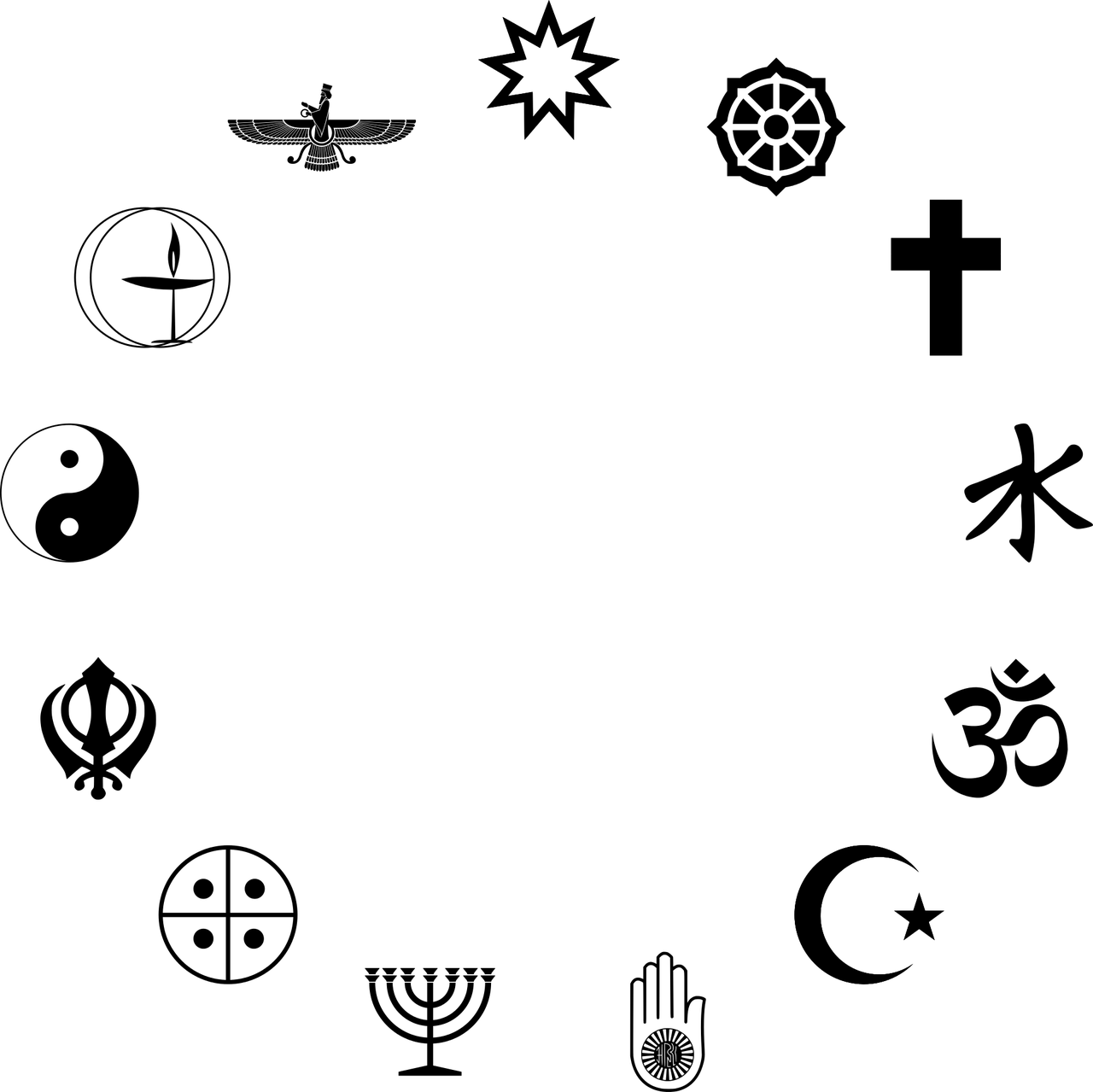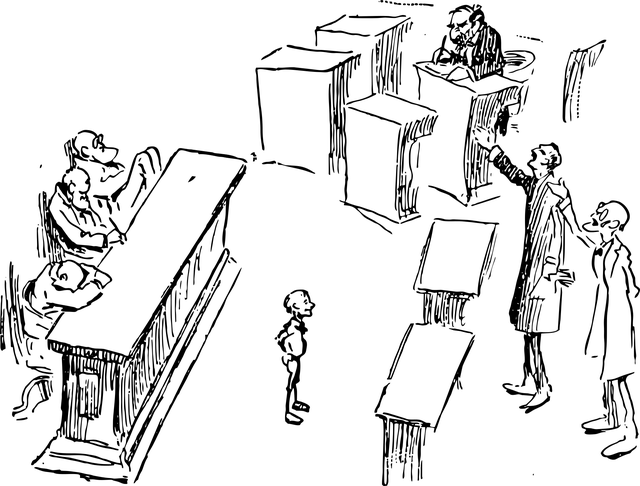About System theory and the integrative look on life - You are not as objective thinking as you might assume
The systemic integrative approach of human existence
I'm sure you've asked yourself the question in your life: why me? Why now? Why is this happening to me? By the way, you only ask yourself that kind of question every time something bad happens to you. As far as you won the lottery, you wouldn't ask yourself that first, but perhaps you would not be able to believe your luck. I would like to give answers to these questions, insofar as the knowledge of "why" is often overemphasized. In this article I will discuss the systemically integrative approach that I practice in my work as a consultant. Firstly, I examine the "systemic" and in the second part, the "integrative"aspect. Have fun reading!
What is system theory?
Before I give a definition, I want to come from another side. As human beings, we move permanently in systems. On the one hand, our own body-mind-system, which means our bodyliness and our spirit; it contains our biology, sexuality, socialisation, imprints and habits, feelings and emotions. Mind and body interact with each other. ... In fact it is somehow strange that we divide them.
On the other hand, we operate in narrow and wide-ranging social systems: our family of origin is like our closest, own children and relatives. Then the further social relations like to friends and colleagues as well as strangers and beyond that our embedding in the system of the community or city in which we exist, then the nation, the continent and our habitat of the earth with all organic life such as flora and fauna.I have now mentioned here two pillars of human identity,
which denominate us as social beings. Other pillars that we recognize as such are: our involvement in being active, whether it is the system of gainful or domestic work, a company (organization) or the home, an association or another form of cooperation that makes "being active" possible. The fourth pillar is that of matter in the sense of money and prosperity or wealth, i. e. all goods that we call our own can be individual or collective goods.
The last and fifth element names the principles and values of human coexistence, including religions or spirituality - all theistic and non-theistic worldviews (mostly heavily underestimated or overrated).
On the run, in the mix
"Systems theory is the interdisciplinary study of systems. A system is an entity with interrelated and interdependent parts; it is defined by its boundaries and it is more than the sum of its parts (subsystem). Changing one part of the system affects other parts and the whole system, with predictable patterns of behavior." (source: wikipedia)
The systemics looks at these identifications and says that the elements - or actors - of any system interact with each other, they depend on each other and are permanent interactions in all systems due to the constant movement. Since there is no static or immutable system in the world, changes are normal and therefore neither good nor bad. It is simply a fact that this is happening. Otherwise we would not age, our appearance would not change, the cells would not divide, the environment around us would remain the same.
System theory or systemics offers a view of the world. It also says that our common explanatory model of cause and effect is insufficient and does not do justice to the complexity of the uncountable processes in the systems.To this I quote:
"Perhaps one can call it the most important discovery of cybernetics to have found empirically and technically that it is fundamentally impossible to describe the transcendental structure of reality by means of two alternative components of reality. The structures of understanding resulting from our traditional bivalent thinking are mere abbreviations. The full text of reality cannot be read from them. They are far too poor in their relational structure to do justice to the wealth of real figures."
Gotthard Günther in: The Consciousness of Machines
Cybernetics as an important part of system theory attempts to explain and control systems on the basis of observation, technology and method.
Second-order cybernetics wants to offer us an unusual perspective:
on the one hand, it says that non-controllable systems can be controlled and, on the other hand, it says that our dual thinking does not do justice to the logic of living systems. We cannot treat the dynamic processes of living systems (human, animal, plant, bacteria, etc.) like trivial mechanisms, not like machines. While at the same time we are wrong that this attitude does not have any negative consequences.
Here is a simple description of a controllable mechanism:
I interpret this in such a way that every attempt to gain absolute control over systems is not only impossible, but every attempt to create one always has its own disadvantages, along with some other advantages.
The way in which Western civilizations are debating some issues in the general public, however, is in many respects a trench discussion that takes up two different positions and does not integrate the fact that both positions are or may be right as well as wrong.
It is one thing to install a heating controller and set a standard temperature so that the sensor measuring the heat causes the system to regulate the temperature up or down. Another is to manipulate living systems in this way.
The stone I threw into a river five minutes ago
may still be in the same place, but the river is a completely different one than it was five minutes ago.
The same medicine, in the same dose and composition may be absolutely helpful to one person, to another only conditionally and again to someone, not at all. From the point of view of systems theory, the efficacy of a medicine can be explained not only within the body/mind state of a person, but should also consider the conditions and circumstances as well as the temporal component around this person.
Since countless, indeed thousands of factors play a role here, it can never be said with ultimate certainty which of the surrounding conditions and circumstances cause health and illness.What we invent for control is always only as good or as bad as the factors we use for it and what we use as an explanatory model as well as our perception of it.
In order to find your way around this insecure space, one cannot help but logically assume that orientation aids would be useful.
These can be taken from where they have been delivered to us for thousands of years. Ancient or pre-ancient ethics, the integrity of human models of our history and spirituality.
In systemics, a circular and non-linear view of the systems helps.
Thus, in the context of consultations of a systemically integrative nature, exactly such "circular" questions are posed - for example in the case of family systems.
They say something like, "If you stop drinking, what do you think your son will think of it?"
Or, "Who would be the first to notice if you changed your behaviour towards your wife?"
As a systemic practitioner, one also presents so-called "miracle questions", for example: "Imagine that a good fairy would conjure up your problem from one day to the next. What would your next day look like? What would you do, what would you miss?"
You could also ask for the advantage or gain if someone is asleep all the time in the morning. So instead of admonishing the teacher or the boss to be angry with his behaviour, the question could be: "What advantage do you gain with your behaviour? What is your personal gain? What would have to happen for you to give up this advantage?"
Why-questions are actually not very helpful.
Basically, one would like to shy away from them, because there are hundreds of "that's why".
A systemic consultant asks for the exceptions, how something works for a person from his or her perspective, what resources he or she has, what capacity, and what experience is available to him or her. He asks for a person's perception and assessment and accepts that the perception of one person differs from that of another and that both are "right"with their respective perspectives. Furthermore, the systemic practitioner is aware that he cannot be considered an objective observer of a system, because his presence, his own experiences, perceptions and emotions already influence the person he advises. From this point of view, there is no such thing as a pure objective observer.
Don't be extreme!
Now we must not go too far with this viewpoint, because if the borders are blurred and everything forms a circle in which there seems to be no beginning and no end, because things are far too complex to be recognized as cause and effect principles, we get caught in the devil's kitchen. For example, it would no longer be possible to distinguish between victims and perpetrators, and the case law would be in dire straits. Or one could no longer rely on the fact that the cough or the inflamed throat cannot have a bacterial or viral cause.
But it relativizes the cause-effect point of view in a radical and at the same time elegant way.
The systemic point of view offers a way out of duality, an escape from extremes that all too often use an "either/or attitude". We all know that the latter causes too much suffering.Systemically practitioners have a kind of "oath" - they refer to ethical principles that are fortunately very simple.
One only has to ask oneself whether the intervention or the question I put to a client will be useful and helpful for the client or whether it will not be. Whether my acting as a counsellor is healing or unholy. What is the intention of my question or offer of a thesis?
Here are some methods that are typical for a systemic consultant or therapist:
- Circular questions (as explained above)
- Reframing (reassessing experiences, giving them a new meaning, reinterpreting them)
- Genogram (must be imagined as a kind of family tree in which the relationships in a system are represented graphically)
- Change of Perspectives
- Paradoxical interventions (this is actually a funny method, I probably will write an own article about)
- Timelines
- Hypotheses (transparent offer of assumptions and hypotheses)
- Mediation (consulting disputed parties)
- "Gestalt-Arbeit" constellation work with persons integrating the body a.) phenomenological type (family, team and organisation constellations) b) constructivistic type: work with objects
- Rituals and use of symbols
- Storytelling, role playing, metaphors
- Active listening
- Sensitization of perception of others and self-perception
I spoke about the "systemic part", now I would like to talk about the "integrative part" of the consulting work.
Take it away! Erase it!
When people who feel bad seek help, the conviction comes with them that what causes (or is believed to cause) evil should be removed. This "it is supposed to be removed" would not only not help, it would even be counterproductive, because what a person perceives as disturbing or wants to have taken away, in reality "only" wants to experience integration.
The inner judge
For example, someone is very strict and critical of himself. He carries an inner executioner with him, who tells him every time he has finished something,"that was just half-baked once again. You're sloppy and lazy too!"
The systemic practitioner will not now give such a person, who starts to suffer from his own demands, methods to destroy this critic. That would be exactly the same as if you wanted to forbid the friendly part of yourself from ever being friendly again. Instead, the systemic practitioner translates the critic and offers a different view of the executioner through his questions. If the client would not want to ignore this judge immediately, but listen to him and ask him to speak in a less aggressive way, he would get other answers. The judge would be reinterpreted as a constructive critic (reframed) and eventually integrated.The integrative part is therefore just as important as the systemic part. The negative (just like positive) beliefs and familiar convictions that we humans carry around with us, basically originate from manifestations about ourselves that are no longer true, but we still believe that they are a fixed part of our personality.
The executioner may be someone from the past, a parent or a teacher and in order to survive as a child, it was necessary to submit to the strict demands of the environment. In the adult's life, however, which has outgrown the parents and teachers, such a strategy is no longer necessary and is generally more damaging than useful. The integrative part of a systemic counselling should help to develop an "inner team" (according to Schulz von Thun), which puts all its members under its own highest authority and is justly managed by it.
How about having access to your own supreme authority in all your circumstances and acting and deciding wisely and compassionately?
My last question to you: In what exceptional situations in your life have you intuitively acted to avoid disregarding a voice in the back of your head and what has it brought to you? I would be delighted to read your answers.
Thanks for your attention.
Here is an overview of my SteemSTEM articles published so far:
https://steemit.com/steemstem/@erh.germany/please-disturb-a-tribute-to-annoyances
https://steemit.com/steemstem/@erh.germany/what-s-a-tetralemma-and-what-is-it-good-for
As a consultant I work with family systems and the related issues within a system - this includes singles and couples/separated couples & patchwork families. My other focus is personal coaching including all Pillars of human identity (extract of Helmut Kames' diploma thesis, unfortunately only in German).
Systemic counselling involves counselling people with regard to their respective social systems in the respective context. Among other things, it includes advice on the family context. Systemic consulting is based on system theory, e. g. Talcott Parsons, constructivism, e. g. Fritz B. Simon and second-order cybernetics, e. g. Heinz von Foerster, Cybernetics of Cybernetics, The Control of Control and the Communication of Communication Picture Sources: follow me: @erh.germany
Brain-network, earth, cybernetic, ancient ethics: pixabay
Controlling-scheme (made by myself)
Möbiusband: photographed from a magazine by M. C. Escher, which I bought in the 80s.
Eve with the book of knowledge: pixabay
If this has met your taste and interest,








A great read although I would be lying if I told you I understood it all :) I will need to read it several times to understand more fully! I am new to Steemit and as an artist/writer/lightworker come from a slightly less academic more intuitive place - I also have the benefit of talking to spirit since 2016; (Completely unsolicited and out of the blue). When I get all deep and philosophical and ask too many questions they tell me to not overthink, They often advise me to just "BE". I would be interested to know what you make of this advice... Thanks and have a cheery and chipper day xox
Thanks to you. Is there something in particular you want to know? Don't hesitate to ask:)
Academics & intuition: from what I like is, that the two can go hand in hand.
You talk to ghosts? Have I understood that right? Interesting. Are they human or other creatures?
I guess you already gave yourself the answer that "over thinking" can be quite exhausting and confusing. "Just be" is as difficult as "just think", so I guess a good balance is needed, where being & using the mind is shared on a healthy level.
I hope, that supported your already made conclusion ;-)
Congratulations @erh.germany, this post is the eighth most rewarded post (based on pending payouts) in the last 12 hours written by a User account holder (accounts that hold between 0.1 and 1.0 Mega Vests). The total number of posts by User account holders during this period was 3178 and the total pending payments to posts in this category was $2153.84. To see the full list of highest paid posts across all accounts categories, click here.
If you do not wish to receive these messages in future, please reply stop to this comment.